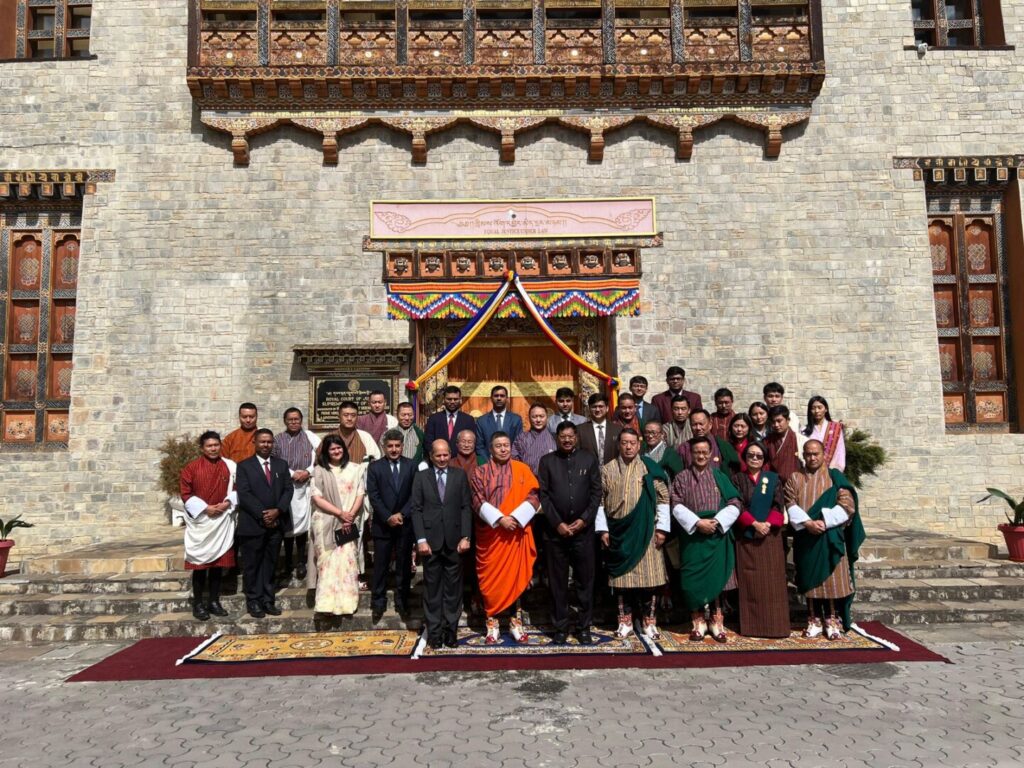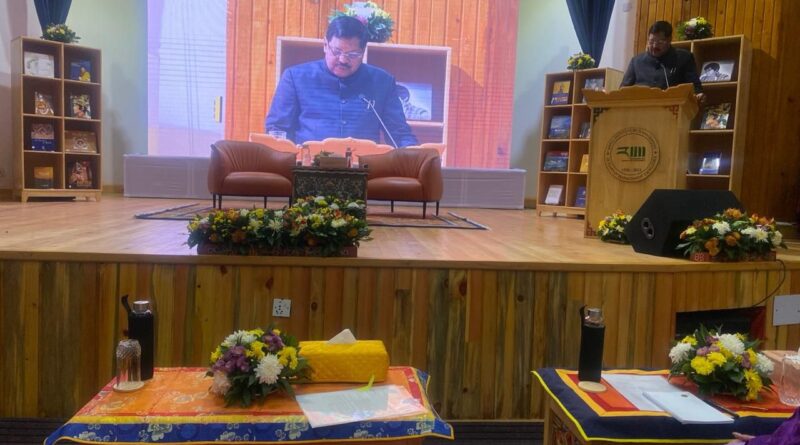Judicial Wisdom Without Borders—CJI BR Gavai on the Universal Relevance of India’s Basic Structure Doctrine
(Judicial Quest News Network)
Chief Justice of India Dr. B.R. Gavai underscored the global resonance of India’s Basic Structure Doctrine during his keynote address at the fifth edition of the “Wisdom for the Future” talk series, hosted by the Jigme Singye Wangchuck School of Law at the Royal Institute of Management Convention Hall, Thimphu, Bhutan.
Speaking on the theme “Courts and Constitutional Governance,” CJI Gavai observed that the Basic Structure Doctrine, a cornerstone of Indian constitutional jurisprudence, has transcended national boundaries to inspire jurisdictions worldwide in reinforcing constitutional supremacy and democratic resilience.
The event was graced by Her Royal Highness Princess Sonam Dechan Wangchuck, President of the JSW School of Law, along with Chief Justice Norbu Tshering of the Supreme Court of Bhutan, judges, legal scholars, and students.

Emphasising the judiciary’s role as the sentinel on the qui vive of constitutional governance, CJI Gavai noted that India’s experience with the doctrine continues to offer valuable guidance to nations striving to preserve the sanctity and supremacy of their constitutions.
“The significance of the basic structure doctrine extends far beyond India’s borders. Jurisdictions across the world have drawn inspiration from this principle, using it to reinforce constitutional supremacy and to guard against the dilution of core democratic values “The Chief Justice Said.
He commenced his address by expressing deep gratitude for Bhutan’s warmth and gracious hospitality, describing the Himalayan kingdom as a harmonious blend of tradition and modernity, progress and peace. He further observed that Bhutan’s societal model—rooted in balance and compassion—stands as a living testament to what an ideal civilization can aspire to be.
This sense of harmony, between the material and the moral, between the individual and the collective, lies at the heart of the shared philosophical inheritance that binds India and Bhutan. Ours is a relationship that is
beyond borders and centuries. Our relationship is nurtured by a common civilizational spirit, one that finds its most eloquent expression in the teachings of the Lord Buddha. Chief Justice Said.
Beyond economic ties, the India–Bhutan partnership thrives in education, technology, and cultural exchange. The relationship is further strengthened by robust people-to-people connections, with over 50,000 Indian citizens contributing their expertise in Bhutan, reflecting the deep interdependence, trust, and friendship that define our enduring partnership across every domain of national life.
He further said that the courts are not merely dispute resolution bodies but essential pillars of constitutional governance.” The Judiciary stands as both a guardian and a moral conscience of the Constitution. Its role goes beyond interpretation it embodies the living spirit of constitutionalism by maintaining the delicate balance among the organs of the State,” he said.
The strength of constitutional governance depends not only on the text of the law but also on the integrity, independence, and wisdom of the institutions that uphold it.
The courts must interpret the constitution in a way that gives life to its ideals of justice, liberty, equality, and fraternity, placing the citizen at the centre of the democratic framework.
The significance of the basic structure doctrine extends far beyond India’s borders. Jurisdictions across the world have drawn inspiration from this principle, using it to reinforce constitutional supremacy and to guard against the dilution of core democratic values.


